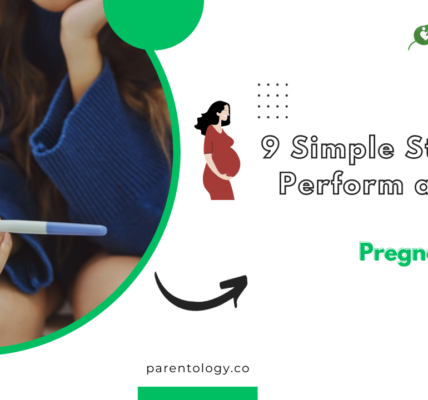First Time Pregnancy: Important Things To Know
First time pregnancy is a remarkable and life-changing experience. The anticipation, excitement, and curiosity can be overwhelming. It’s a time of great joy and sometimes a touch of anxiety. In this comprehensive guide, we’ll walk you through ten essential things to know when you are pregnant for the first time. Whether you’re navigating the initial weeks or preparing for labor, this article will provide you with valuable insights and tips to make your journey into parenthood as smooth as possible. Before we dive into the details, let’s start with a brief overview of what it means to experience a first time pregnancy.
Definition: A first time pregnancy, also known as a primiparous pregnancy, refers to the first instance when a woman becomes pregnant and carries a child to term.
Important Information About Pregnancy
1. Confirmation and Initial Steps
1.1. Confirming Pregnancy
The journey begins with confirming your pregnancy. You can do this through a home pregnancy test or a visit to your healthcare provider. Make sure to follow the instructions carefully for correct results.
1.2. Choose Your Healthcare Provider
Select a healthcare provider who is specializes in obstetrics and gynecology. They will be your guide throughout your pregnancy journey, ensuring you and your baby receive the best care.
2. Prenatal Care: The Foundation
Prenatal care is the main foundation of a healthy pregnancy. It involves regular medical check-ups, screenings, and guidance. Some key points to consider:
2.1. Start Prenatal Vitamins
Begin taking prenatal vitamins as soon as you confirm your pregnancy. They ensure that you and your baby receive essential nutrients.
2.2. Regular Check-ups
Attend all your prenatal check-ups to monitor your baby’s growth and health. Your healthcare provider will also provide guidance on a healthy lifestyle during pregnancy.
3. Physical Changes: What to Expect
Your body will undergo significant changes during pregnancy. It’s essential to be aware of these transformations to ensure a comfortable journey.
3.1. Morning Sickness
Many women experience morning sickness during the first trimester. Understanding the triggers and managing symptoms can help alleviate discomfort.
3.2. Weight Gain
Understand the healthy weight gain during pregnancy and the distribution of those extra pounds. It’s crucial for your baby’s development.
3.3. Breast Changes
Your breasts will change to prepare for breastfeeding. Learning how to manage breast discomfort is vital.
4. Emotional Well-being
Emotional well-being is as crucial as physical health during pregnancy. Your emotions may fluctuate, and that’s perfectly normal. Here’s how to maintain your emotional health:
4.1. Seek Support
Share your feelings, thoughts, and concerns with your partner, family, and friends. Emotional support can make a significant difference.
4.2. Stress Management
Practice relaxation techniques to reduce stress and anxiety. Mindfulness, yoga, and meditation are great options.
4.3. Self-Education
Stay informed about the pregnancy process. Knowledge can alleviate fears and uncertainties, making your journey more comfortable.
5. Dietary Guidelines
Proper nutrition is fundamental for a healthy pregnancy. Here are some dietary guidelines:
5.1. Balanced Diet
Consume a balanced diet rich in fruits, vegetables, lean proteins, and whole grains. Ensure you are getting all the necessary nutrients.
5.2. Hydration
Stay well-hydrated by drinking plenty of water. Proper hydration supports your body and your baby’s development.
5.3. Avoid Harmful Substances
Refrain from alcohol, smoking, and excessive caffeine consumption. These substances can be harmful to your baby.
6. Exercise and Activity
Maintaining an active lifestyle during pregnancy offers numerous benefits. Here’s what you need to know:
6.1. Consult Your Healthcare Provider
Before starting any exercise routine, consult your healthcare provider and specialist. They will advise you on safe exercises suitable for your pregnancy.
6.2. Stay Active
Engage in regular, low-impact activities like walking, swimming, or prenatal yoga. Staying active contributes to your overall well-being.
7. Childbirth Preparation
As your due date approaches, it’s essential to prepare for childbirth. Here are some aspects to consider:
7.1. Choosing a Birth Plan
Research and decide on your preferred birth plan. Options include natural birth, water birth, or a cesarean section (C-section).
7.2. Childbirth Classes
Consider attending childbirth classes to gain knowledge and confidence about labor and delivery. These classes can answer many of your questions about the birthing process.
8. Preparing for Parenthood
Becoming a parent for the first time is a transformative experience. Here’s how to prepare for parenthood:
8.1. Baby Essentials
Gather necessary baby items such as a crib, car seat, and baby clothing. Prepare a comfortable space for your baby at home.
8.2. Parenting Classes
Consider enrolling in parenting classes to learn about newborn care and parenting skills. These classes will provide you with valuable knowledge and support.
Frequently Asked Questions (FAQs)
Here are some common FAQs related to first time pregnancy:
FAQ 1: What are the early signs of pregnancy?
Ans 1: Early signs of pregnancy include missed periods, breast tenderness, nausea, fatigue, and increased urination.
FAQ 2: When should I start prenatal care?
Ans: You should begin prenatal care as soon as you confirm your pregnancy, ideally within the first 12 weeks.
FAQ 3: Can I travel during pregnancy?
Ans: Travel is generally safe during the first and second trimesters, but consult your healthcare provider before making travel plans.
FAQ 4: How can I relieve morning sickness?
Ans: Ginger, eating small, frequent meals, and staying hydrated can help alleviate morning sickness.
FAQ 5: What should I pack for the hospital?
Ans: Your hospital bag should include essentials like comfortable clothing, toiletries, and necessary baby items.
FAQ 6: When will I feel the baby’s first movements?
Ans: Most women start feeling their baby’s movements (quickening) between 18 to 25 weeks of pregnancy.
FAQ 7: Can I continue working during pregnancy?
Ans: Many women continue working during pregnancy, but it depends on the nature of your job and your comfort level.
FAQ 8: How do I choose a pediatrician for my baby?
Ans: Research and interview potential pediatricians to find one who aligns with your parenting values and preferences.
FAQ 9: When should I create a birth plan?
Ans: It’s advisable to create a birth plan in the second trimester to ensure you have time to discuss it with your healthcare provider.
FAQ 10: What are the options for pain relief during labor?
Ans: Options for pain relief during labor may include epidurals, pain medications, and natural pain management techniques.
Conclusion
Experiencing a first time pregnancy is an extraordinary journey filled with unique experiences and challenges. By staying informed, seeking proper medical care, and preparing for parenthood, you can make this journey a fulfilling and joyous one. Remember that every pregnancy is different, and it’s essential to listen to your body and trust your healthcare provider’s guidance.
As you embark on this new chapter, Parentology offers valuable resources and information to support you throughout your pregnancy. For more insights and guidance on first time pregnancy, explore our articles on Parentology.
Remember, you are not alone in this journey. Embrace the changes, stay positive, and look forward to the beautiful moments that await you as you prepare to welcome your little one into the world.





